Blogging has evolved from a hobby into a legitimate career path. Professional blogging is about turning your passion for writing into a structured, income-generating venture.
As a blogging professional, you can share insights, teach skills, or review products to connect with an audience while building authority in your niche.
From my experience, the journey starts small—experimenting with topics and learning as you go.
But with consistency and strategic planning, you can transform a blog into a sustainable business. Want to learn more? Keep reading.
What is professional blogging?
Professional blogging is the practice of creating and managing a blog with the goal of earning an income.
Unlike casual blogging, which is often done for personal enjoyment, this type of blogging focuses on building an audience, providing valuable content, and monetizing the platform.
You might earn through ads, sponsored posts, affiliate marketing, or selling your own products and services.
Michelle Schroeder-Gardner from MakingSenseofCents.com earns about $125,000 a month from blogging.
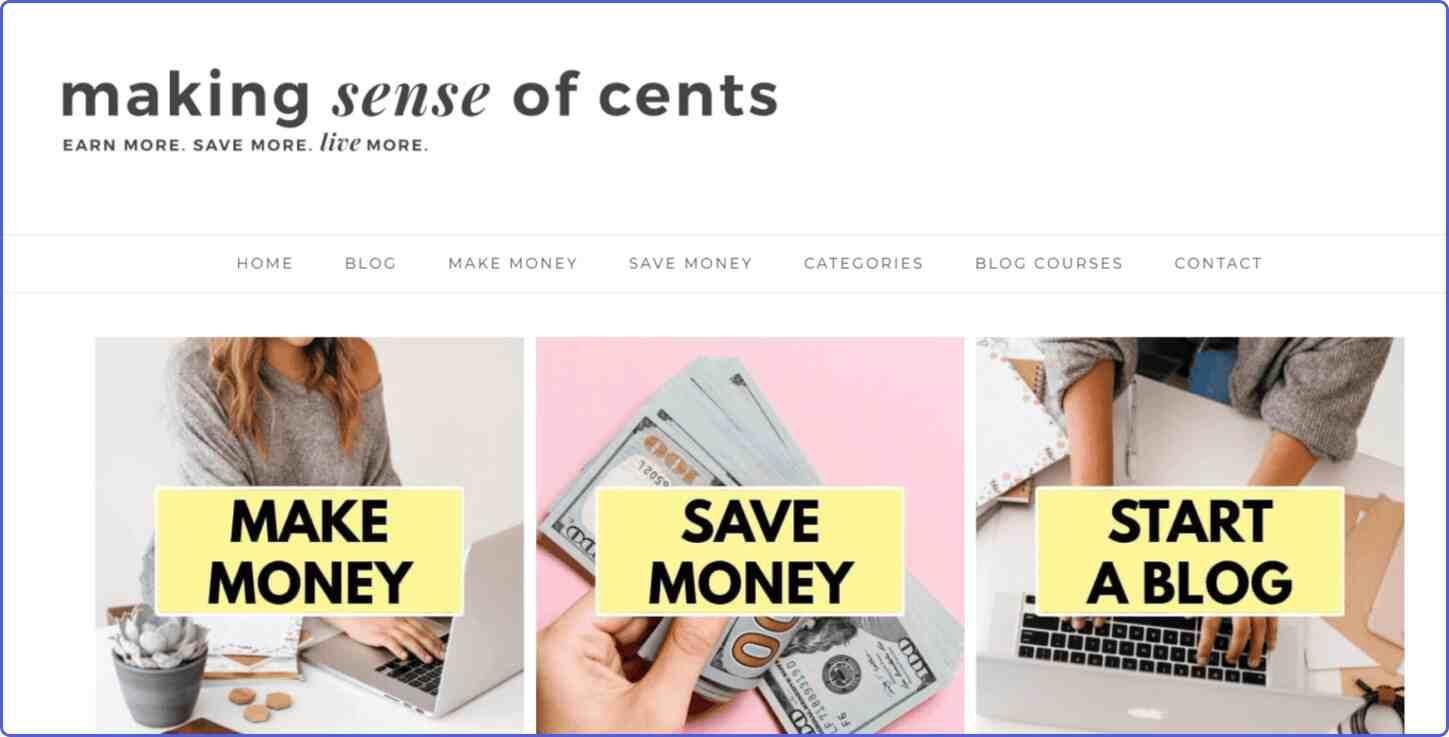
Her main source of income are sponsored partnerships and affiliate marketing.
When I started my own professional blog, I quickly realized it wasn’t just about writing great posts—it also involved understanding your audience, learning SEO, and marketing your content effectively. It’s a mix of creativity and strategy.
This type of blogging requires you to treat your blog like a business. This means planning your content, maintaining a posting schedule, and continuously improving your skills.
You’ll need to understand analytics to see what works and adapt as you grow. It’s not an overnight success story, but it can be a rewarding journey if you enjoy sharing ideas and connecting with people.
Whether you’re exploring this as a side hustle or a full-time endeavor, it’s a unique way to combine creativity with entrepreneurship while making an impact in your chosen field.
Types of professional blogs
Professional blogging takes many forms, and understanding the types can help you find the best fit for your goals. Each type caters to a specific audience, content style, and income strategy.
Niche blogging
Niche blogging focuses on a specific topic like fitness, personal finance, or tech. For instance, a professional blogger in the food niche, like Pinch of Yum, might share healthy and delicious recipes.
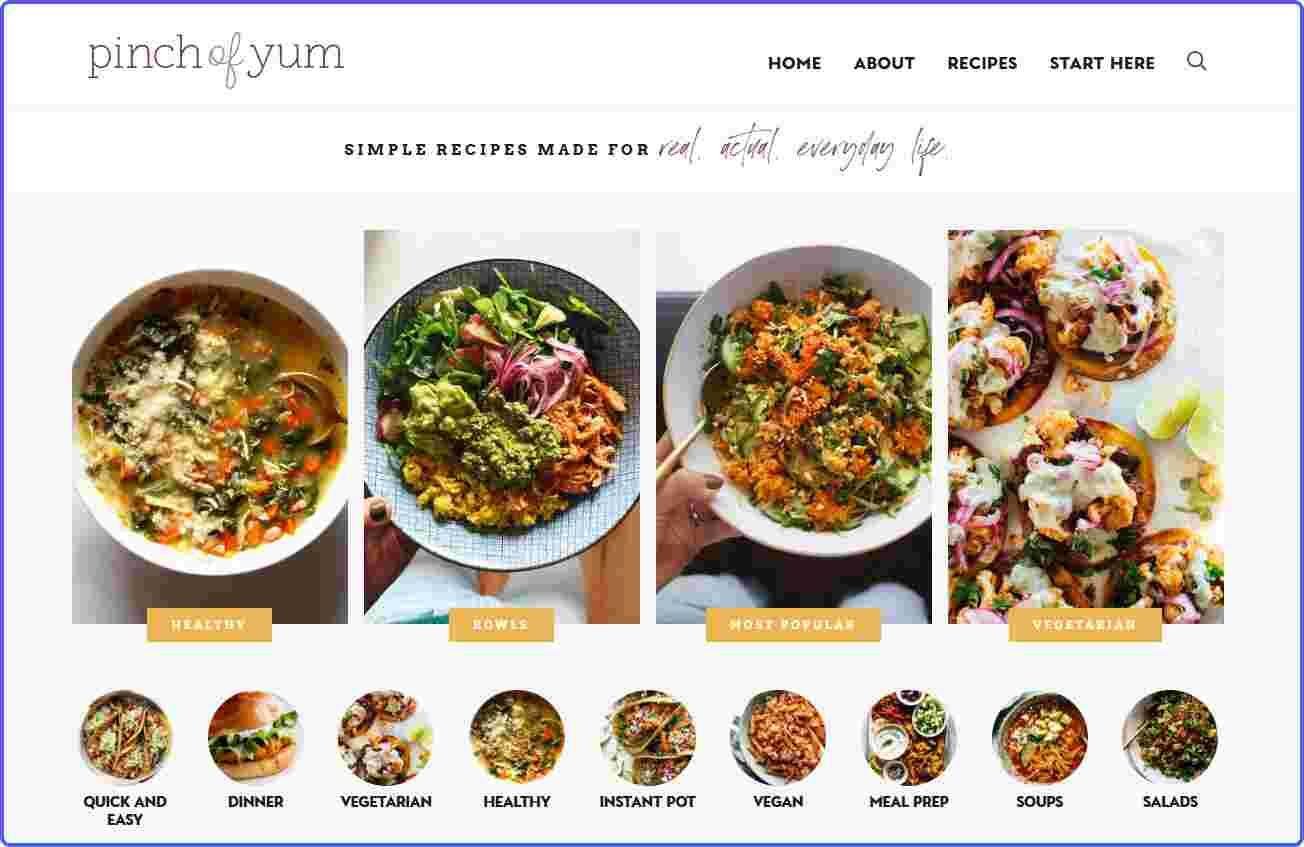
Lifestyle blogging
Lifestyle blogging is broader, covering personal interests like travel, fashion, or parenting. These blogs often reflect your life experiences, making them relatable.
Check out this lifestyle blog, Wit and Delight, as an example.

A parenting blogger might write about balancing work and family life. I’ve noticed lifestyle blogs excel when they have an authentic voice—readers want to connect with your story.
Business blogging
Business blogging supports your brand by educating customers and building trust.
For example, take the luxury leisure wear brand Tommy John. The blog’s content serves its audience with insights within the bounds of its expertise.

For example, a web design company could share tips on creating user-friendly websites.
To learn more, check out this post on business blogging.
Affiliate blogging
Affiliate blogging involves recommending products and earning a commission. The owners of affiliate blogs review various products, with pros and cons, pricing, and overall value.

For example, I’ve written posts about marketing tools I personally use, ensuring my recommendations feel genuine and useful. This type of professional blog works best when your suggestions align with your audience’s needs.
News blogging
News blogging focuses on current events. For example, Engadget started as a blog about the hottest new consumer electronics.

By exploring these types, you can choose a path that matches your interests and goals. Remember, every successful blog starts with providing value to your readers.
For more information, read this guide on how to create a news website.
Skills of a professional blogger
Professional blogging isn’t just about writing—it’s a mix of creative and technical skills that work together to build and maintain a successful blog.
While you don’t need to master everything at once, understanding the key skills can help you get started as a professional blogger and grow over time.

Writing and communication
Clear, engaging writing is at the heart of blogging. You need to present ideas in a way that resonates with your audience.
When I started blogging, I realized how important it was to write conversationally—almost like you’re having a chat with a friend. Practicing this tone helped me connect with readers more effectively.
SEO and keyword research
Search engine optimization (SEO) ensures your content gets discovered online. You’ll need to learn about keywords, meta descriptions, and how to structure your posts for better visibility.
For example, learning and using tools like Semrush and Rank Math is invaluable for optimizing content without over-complicating the process.
Content planning and organization
Creating a consistent publishing schedule keeps your audience engaged. Planning topics in advance with a simple content calendar saves time and reduces stress. It also ensures your content aligns with your long-term blogging goals.
Technical skills
While you don’t need to be a tech expert, basic knowledge of platforms like WordPress, site maintenance, and troubleshooting is essential.
When I first set up my blog, I spent time learning to customize themes and improve site speed—small changes that made a big impact.
For more details, check out this guide on website management.
Marketing and networking
Promoting your blog is just as important as creating content. Social media, email marketing, and guest blogging help you reach a wider audience. Networking with other bloggers opens doors to collaborations and new opportunities.
By developing these skills, you’ll be better equipped to handle the challenges of professional blogging and create a blog that thrives.
Steps to become a blogging professional
Becoming a professional blogger is an exciting journey that combines creativity, strategy, and persistence.
It’s not just about writing; it’s about creating value for your audience and turning your passion into a sustainable business. Here’s how you can get started, step by step.
Choose your niche
Start by picking a niche you’re passionate about and knowledgeable in. A clear focus helps you attract a specific audience and stand out.
For example, if you love fitness, your niche could be home workouts or nutrition tips. A good free tool to check the trend of a topic is by using Google Trends. Enter your niche topic and country. Then, select the year range, and you will be able to see how the interest of users has increased or decreased around that topic.
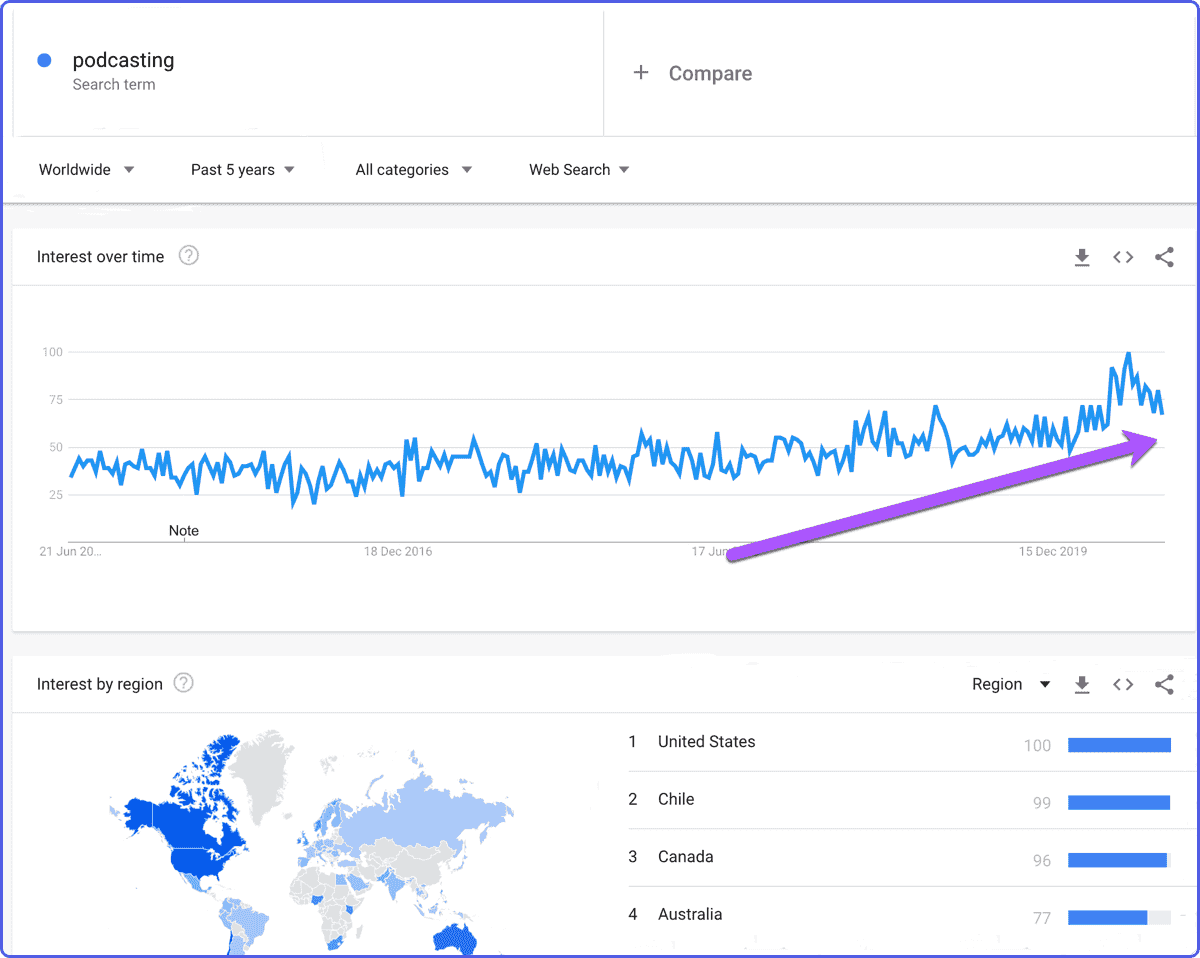
When I began blogging, I chose tools and strategies for office executives and small businesses—a topic I was both familiar with and excited to explore further.
For more details, read my guide on picking the right niche.
Set up your blog
Creating and configuring a professional blog involves a number of steps. These include registering a domain name, choosing a blog platform, installing a CMS, and customizing your blog’s design.
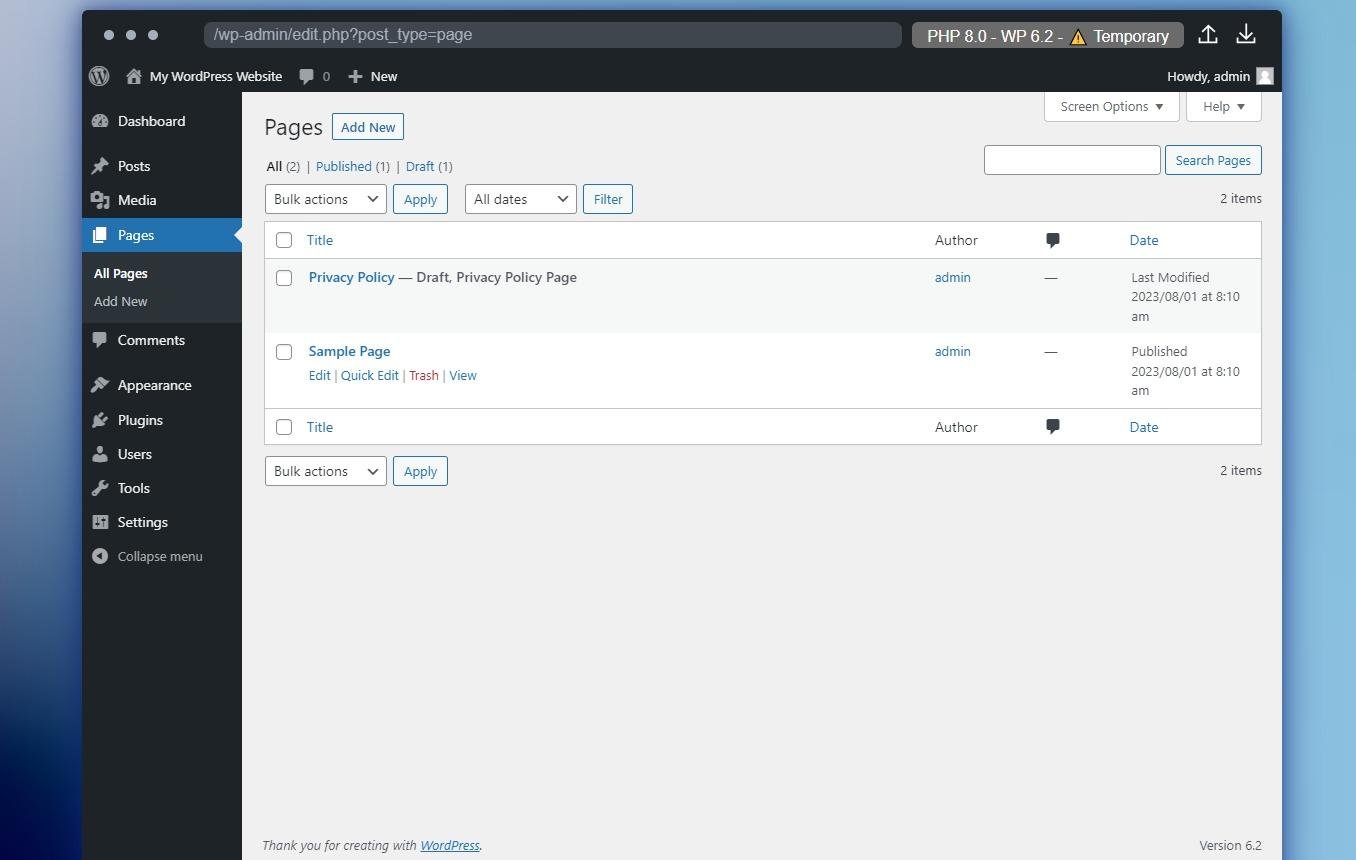
To learn more, check out my complete guide to starting a blog.
Plan and create quality content
Content is the backbone of blogging. Plan topics that solve problems or entertain your audience. Use a content calendar to stay organized.
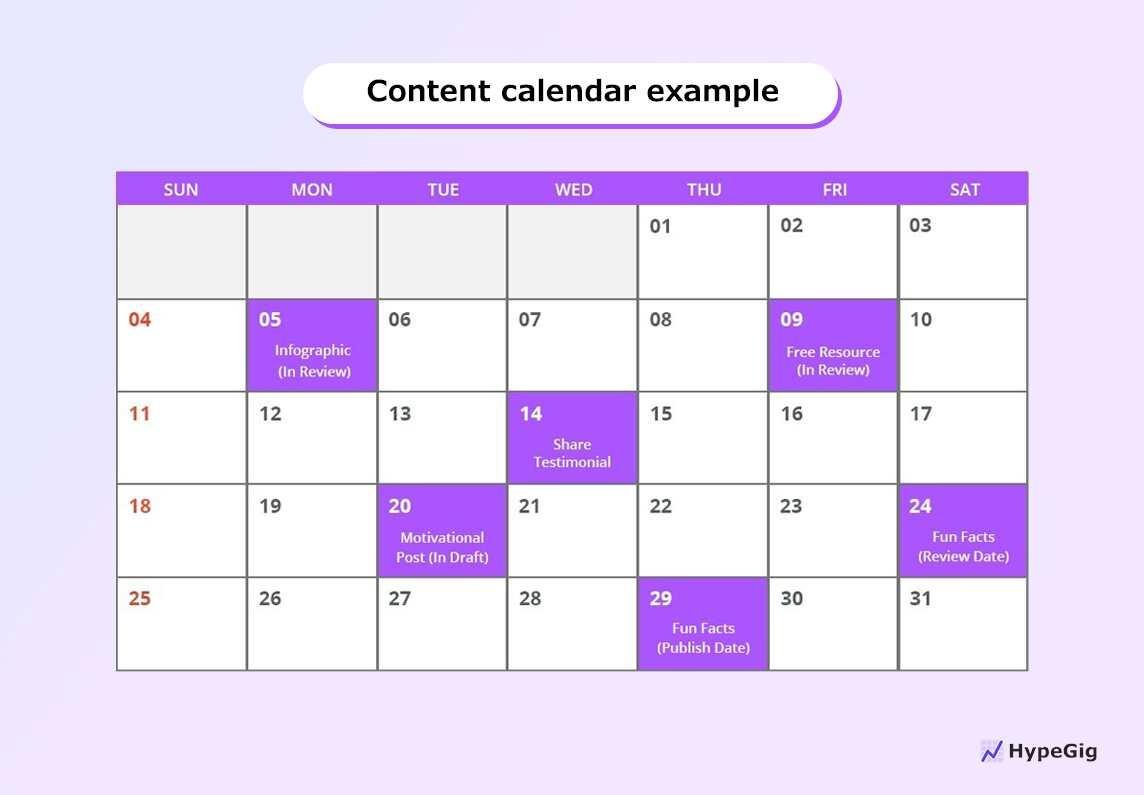
For instance, if you’re a travel blogger, you could write about budgeting tips for specific destinations.
If you want to build a strong content foundation, I’d recommend starting with evergreen topics — posts that stay relevant over time.
Related: How to write a blog post
Learn SEO basics
Search engine optimization (SEO) ensures your blog gets found online. Focus on researching keywords, writing compelling meta descriptions, and using proper formatting.
WordPress, for example, provides plugins like Yoast SEO and Rank Math, which guide you through optimizing your posts with keyword suggestions, meta descriptions, and readability checks.
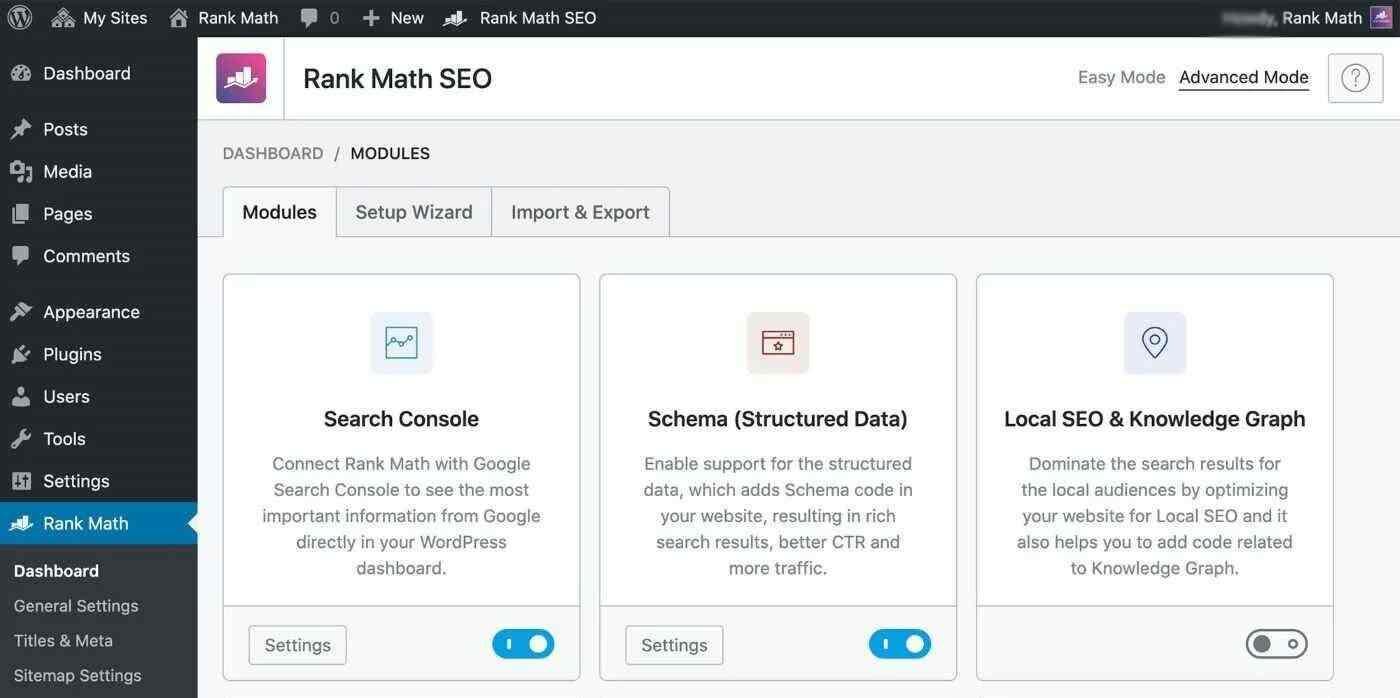
For more details, you can read my full guide to optimizing your blog for SEO.
Promote your blog
Creating content isn’t enough; you need to share it. Use social media platforms, email newsletters, and even guest blogging to reach a wider audience. For example, when guest blogging, here’s a battle-tested email template to use:
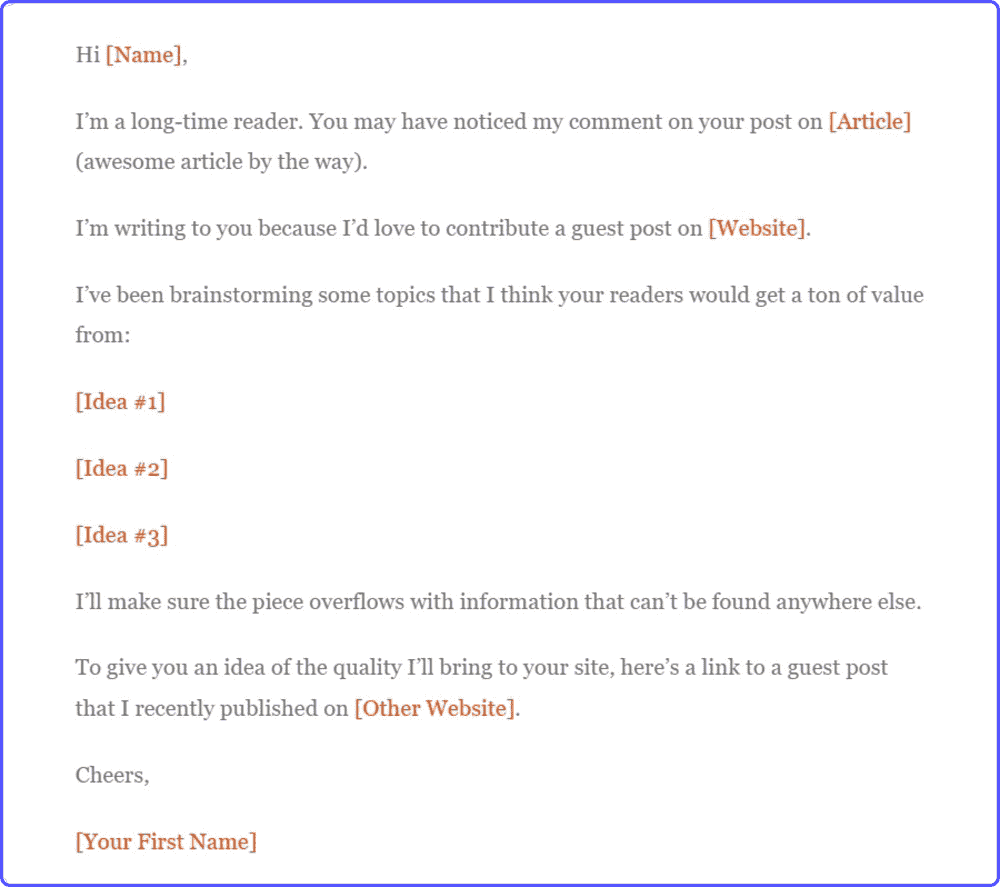
Writing guest posts on related blogs not only brings traffic, but also boosts your credibility in the niche.
For more information, read my post on different ways to promote your blog.
Monetize your blog
Once you’ve built a steady audience, explore monetization options like ads, affiliate marketing, sponsored posts, or selling your own products.
For example, Epic Gardening is a member of Amazon Associates (Amazon’s affiliate program). They monetize blog posts by adding affiliate links. They earn up to 10% commission when readers click links like these and make a purchase.
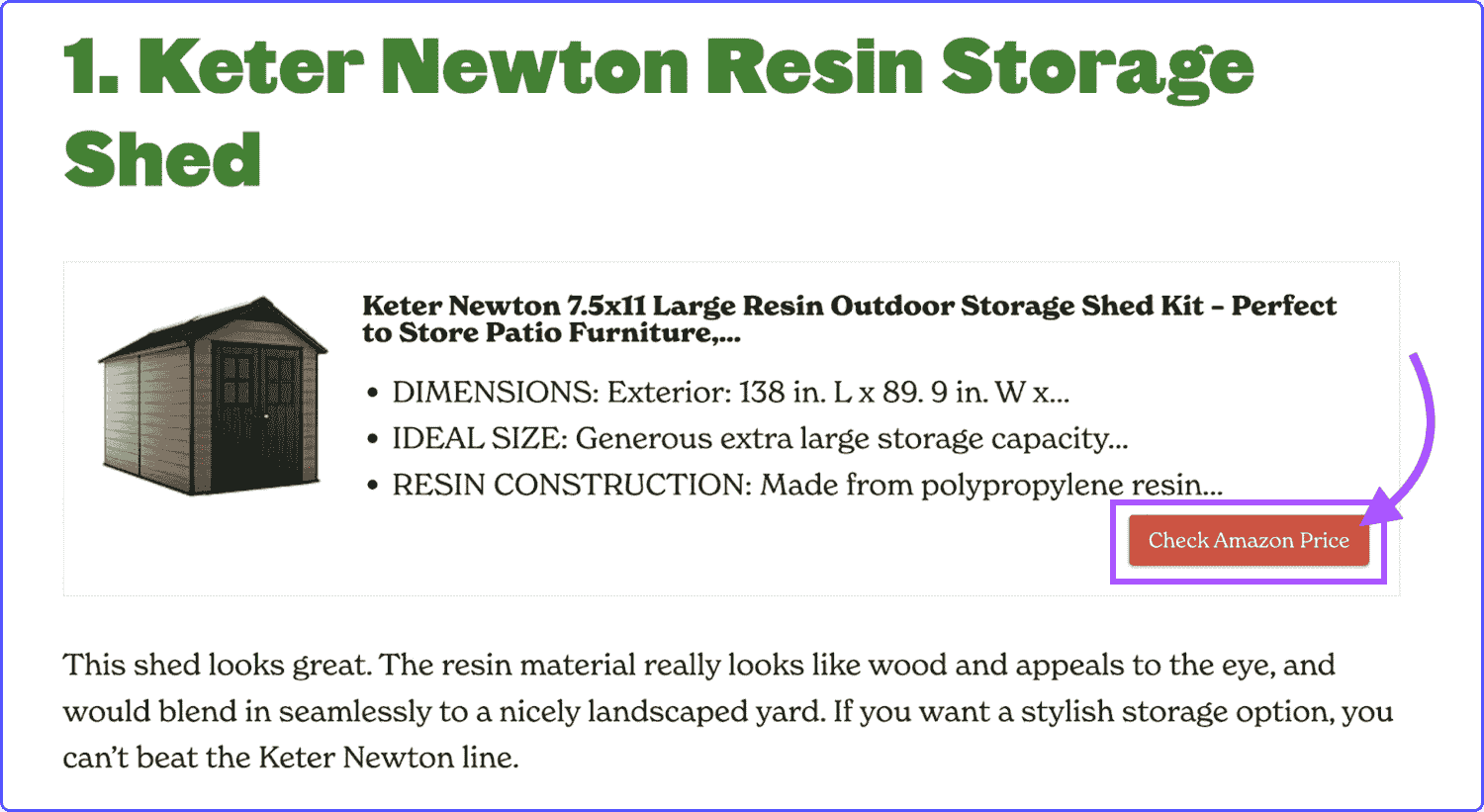
To learn more, check out my guide on blog monetization strategies.
Becoming a professional blogger takes time and effort, but it’s a rewarding way to share your passion while creating a sustainable career. Start small, stay consistent, and focus on providing value—your blog will grow along the way.
How long does it take?
If you’re thinking about becoming a professional blogger, it’s crucial to have realistic expectations from the start.
While the flexibility of blogging is appealing, it’s worth noting that it requires dedication and patience.
Professional blogging isn’t just about writing. If you assume success comes solely from publishing posts, you might feel disheartened.
Blogging also involves mastering SEO, promoting your content, networking, and engaging with your audience.
For example, you’ll need to craft shareable posts, promote them on social media, build an email list, and generate income streams like ads or affiliate partnerships.
Early on, you’ll likely handle everything yourself, from creating content to managing the technical aspects of your site.
So, in most cases, you’ll need at least a year to see consistent results. Blogging is more of a long-term investment than a quick win.
Success comes from balancing creativity with strategy and sticking with it over time. By approaching blogging with the right mindset and staying consistent, you’ll set yourself up for a rewarding journey.
Final thoughts on professional blogging
Becoming a blogging professional is both challenging and rewarding. It’s not just about writing—it’s about building a connection with your audience, staying consistent, and adapting as you learn.
Success in blogging comes down to balance: being creative with your content while applying strategic skills like SEO and promotion.
There are times when progress will feel slow, but small wins—an engaging comment or a traffic spike—will keep you going.
As you grow, you’ll discover what works best for your professional blog. Stay curious, keep improving, and focus on providing value. Over time, your efforts will shape your success.
Did I miss anything? Did you try these tips? Do you have any questions or comments? Share your thoughts below in the comments section.




